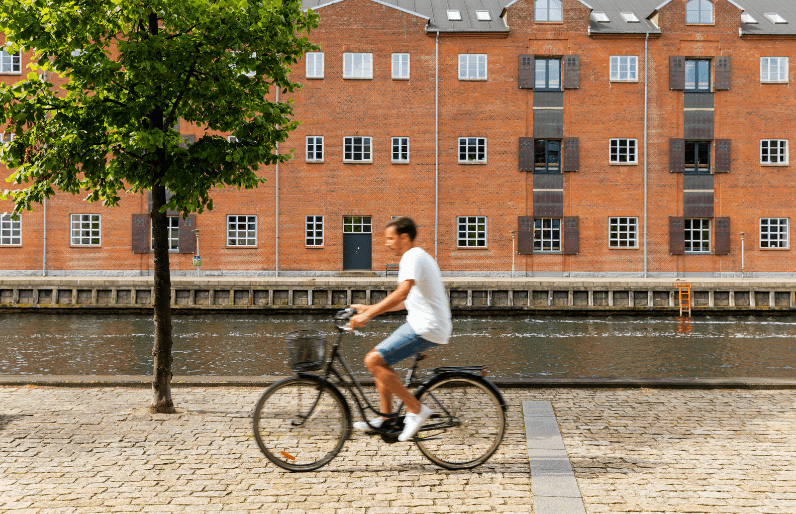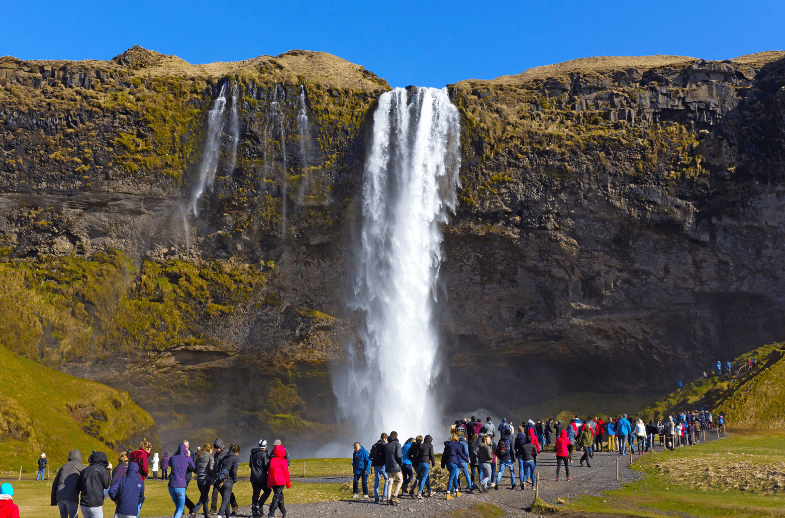Starting July 15, the city’s tourism office, Wonderful Copenhagen, will reward tourists who demonstrate “green” and environmentally friendly behavior during their stay. Instead of restricting tourism like in Barcelona or Mallorca, which suffer from issues related to overcrowding, this city has promoted a groundbreaking measure to encourage sustainable tourism.
Tourists will receive economic benefits for commuting by bicycle, traveling by train, and striving to be cleaner, such as picking up trash or participating in various cleaning tasks. They can even volunteer on urban farms, for example. By engaging in these activities, tourists can enjoy more than 24 different attractions in Copenhagen. This includes access to guided tours of museums or workshops, kayak rentals, free surfing or skiing, and complimentary meals, among other things.

This innovative and groundbreaking proposal aims to encourage visitors to make conscious ecological decisions, offsetting the “environmental footprint” left by tourism. While other European destinations have regulated alcohol consumption or limited tourist apartments to manage tourism, Wonderful Copenhagen offers an initiative that can inspire other cities to attract more sustainable and responsible tourism.
The advertising campaign will be visible at the airport and in central Copenhagen, with the main objective of raising tourist awareness and encouraging ecological behavior. It seeks to bridge the gap between intention and action; the tourism organization reports that while 82% of surveyed visitors express a desire to act sustainably, only 22% have actually changed their behavior.
This initiative may also inspire tourists to adopt these ecological practices at home. Once the results are analyzed, this proposal could be expanded to other parts of Denmark or even introduced to other places around the world.
Sustainable Tourism
Tourism organizations and government institutions, such as the World Tourism Organization and the United Nations General Assembly, are increasingly prioritizing the establishment of sustainable tourism plans. These plans aim to preserve the long-term environmental, economic, and sociocultural well-being of destinations. This is a crucial concept for travel journalists and tourism communication and marketing experts to consider.
Sustainable tourism development and management practices apply to all forms of tourism. For instance, in the Galapagos Islands, there are strict regulations to protect the unique flora and fauna, including controlling the number of tourists, restricting access to certain areas, and prohibiting direct interaction with wildlife. Actions implemented to ensure sustainable tourism include:
- Biodiversity Conservation
- Energy Solutions for Hotels
- Efficient Use of Resources in Tourism
- Waste Reduction
- Sustainable Mobility
- Support for the Local Economy
As travel communication professionals, we have the power to raise awareness and educate our community about sustainable tourism through our channels. Our content should promote low-impact and responsible tourism, highlighting the environmental impact of tourist activities and encouraging ecologically conscious decision-making.

Destinations with Tourist Restrictions
“Overcrowded” destinations have become a significant issue for many cities due to the surge in tourism in recent years. Factors such as increased accessibility, affordable flights, tourist packages, and the influence of social media influencers and travel content creators have exacerbated the problem, prompting cities to seek solutions.
The influx of tourists leads to environmental degradation, loss of cultural authenticity, and strain on infrastructure, including housing and transportation systems. Bali, Indonesia, serves as a prominent example of the challenges posed by excessive tourism. In response, several destinations have started implementing measures to regulate mass tourism and preserve their unique characteristics.
- Kyoto: In Japan, measures such as street closures to tourists and restricted access for locals have been implemented in select areas to preserve residents’ quality of life and maintain cultural authenticity. A notable example is Hanamikoji Street in Kyoto’s Gion district.
- Ibiza and Mallorca: Vehicle circulation is restricted in specific areas to alleviate congestion and reduce pollution.
- Barcelona: The city enforces strict regulations on short-term rental properties to manage visitor numbers and mitigate the impact on local communities. Additionally, flying drones over the Sagrada Familia is prohibited due to the 723 drone recorded in 2023.
- Amsterdam: The number of river cruise ships authorized to dock will be reduced by half, from 2,125 in 2023 to a maximum of 1,150 by 2028, as reported by Infobae.
- Athens: The number of daily visitors to the Acropolis is capped at 20,000 to manage tourist flow.
- Machu Picchu: Peru has implemented a reservation system and strict visitor limits to protect the archaeological site and minimize environmental impact.